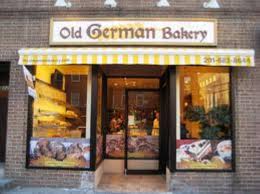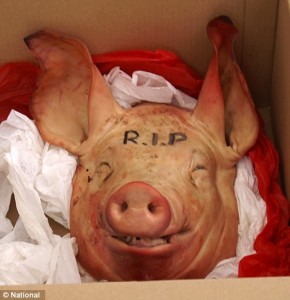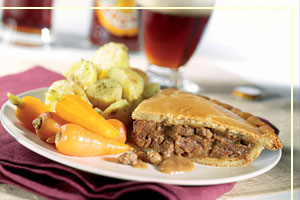In October 2012, a hepatitis A (HA) outbreak with 83 laboratory-confirmed cases occurred in Lower Saxony.
 We defined primary outbreak cases as people with laboratory-confirmed HA and symptom onset between 8 October and 12 November 2012, residing in or visiting the affected districts. Secondary outbreak cases were persons with symptom onset after 12 November 2012 and close contact with primary cases. We identified 77 primary and six secondary cases. We enrolled 50 primary cases and 52 controls matched for age and sex, and found that 82% of cases and 60% of controls had consumed products from a particular bakery (OR=3.09; 95% CI: 1.15–8.68). Cases were more likely to have eaten sweet pastries (OR=5.74; 95% CI: 1.46–22.42). Viral isolates from five selected cases and three positively tested surfaces in the bakery had identical nucleotide sequences. One additional identical isolate derived from a salesperson of the bakery suffering from a chronic disease that required immunosuppressive treatment.
We defined primary outbreak cases as people with laboratory-confirmed HA and symptom onset between 8 October and 12 November 2012, residing in or visiting the affected districts. Secondary outbreak cases were persons with symptom onset after 12 November 2012 and close contact with primary cases. We identified 77 primary and six secondary cases. We enrolled 50 primary cases and 52 controls matched for age and sex, and found that 82% of cases and 60% of controls had consumed products from a particular bakery (OR=3.09; 95% CI: 1.15–8.68). Cases were more likely to have eaten sweet pastries (OR=5.74; 95% CI: 1.46–22.42). Viral isolates from five selected cases and three positively tested surfaces in the bakery had identical nucleotide sequences. One additional identical isolate derived from a salesperson of the bakery suffering from a chronic disease that required immunosuppressive treatment.
Epidemiological and laboratory findings suggested that the salesperson contaminated products while packing and selling. Future risk assessment should determine whether food handlers with chronic diseases under immunosuppressive treatment could be more at risk of contaminating food and might benefit from HAV immunisation.




 a renovation and have improved their practices to meet the ACT’s legal guidelines.
a renovation and have improved their practices to meet the ACT’s legal guidelines. Seafood was a repeat offender, and some others:
Seafood was a repeat offender, and some others:(1).jpeg) immediate recall of the bakery’s goods, and the shop agreed to close its two locations immediately.
immediate recall of the bakery’s goods, and the shop agreed to close its two locations immediately. The owners were hosting the Girl Scouts of America, who needed to earn their baking badges. This was especially significant because the bakers had failed to earn their baking badges back in the day.
The owners were hosting the Girl Scouts of America, who needed to earn their baking badges. This was especially significant because the bakers had failed to earn their baking badges back in the day.
 – Brotes en panaderías y pastelerías son a causa de pobre higiene personal, equipo contaminado y abuso de temperatura.
– Brotes en panaderías y pastelerías son a causa de pobre higiene personal, equipo contaminado y abuso de temperatura. moins 100 personnes malades. La pâtisserie Rolf, l’entreprise en cause, a fermé ses portes et a rappelé un certain nombre de produits vendus au détail pour limiter de nouvelles maladies.
moins 100 personnes malades. La pâtisserie Rolf, l’entreprise en cause, a fermé ses portes et a rappelé un certain nombre de produits vendus au détail pour limiter de nouvelles maladies.